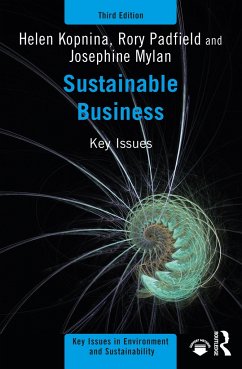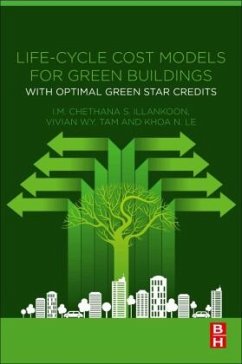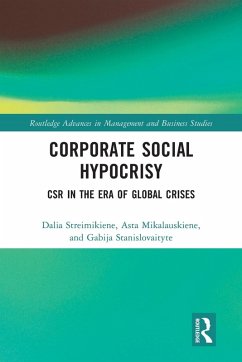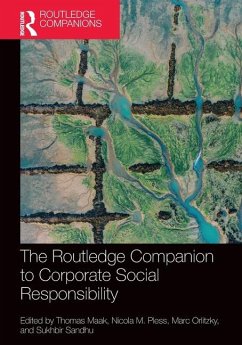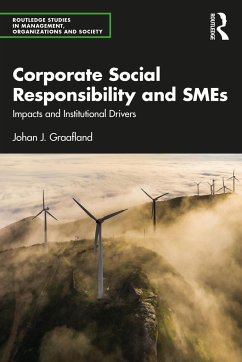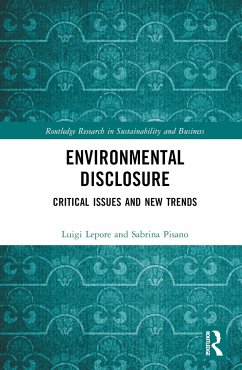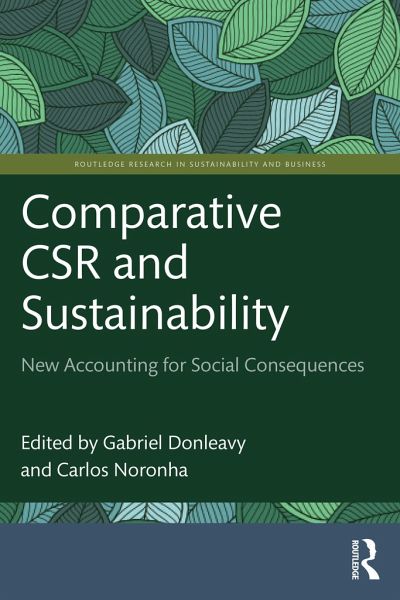
Comparative CSR and Sustainability
New Accounting for Social Consequences
Herausgeber: Donleavy, Gabriel; Noronha, Carlos
Versandkostenfrei!
Versandfertig in 1-2 Wochen
62,99 €
inkl. MwSt.

PAYBACK Punkte
31 °P sammeln!
This book breaks new ground by providing a structured and cohesive set of contributions on the actions, developments, problems and theories of corporate social responsibility (CSR). A useful reference for those interested in discussions on crises, climate change, and SDGs and realizing sustainable goals through CSR.






